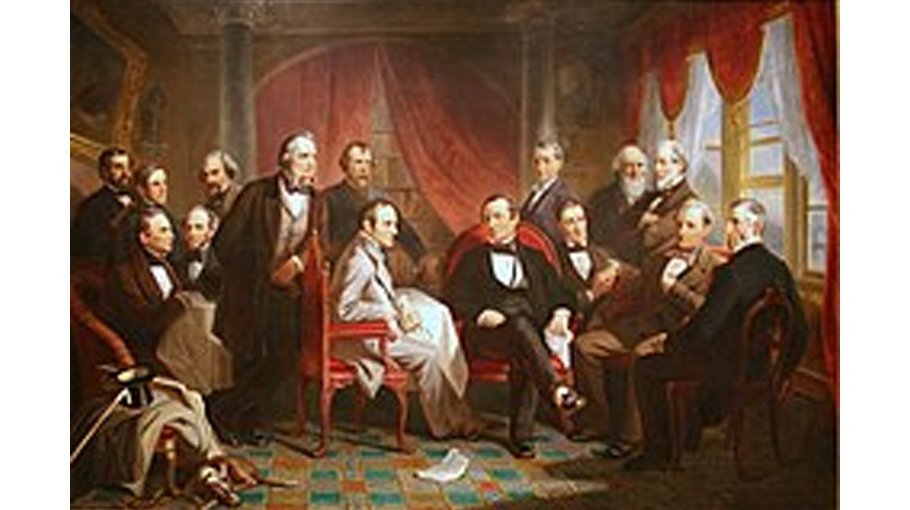Of past and present: American literature and politics

American southern people’s life and living is full of history and mystery. Although the definition and boundary of southern states are as vast as that of deep in meaning, its literature and culture, society and politics of those states are also very peculiarly diverse and gravely significant in shaping the modern America. The peculiarity of southern elements that some of few writers, who poignantly illustrated in their writings, is one such is William Faulkner through his distinctive literary styles and narrative diction, which are quite exact imitation of southern people’s life and living.
To all my intents and purposes, I am here not only to introduce Faulkner and his influence in American society, culture and politics to the readers but also to reintroduce myself with Freaky Faulkner, about whom, I knew a little since my undergrad years, in Bangladesh, as an English major. However, how much could one learn about attending classes, in a semester, when we must complete five to six novels, in a semester on an average, for a course of study, and a total of about fifteen to eighteen novels or dramas, in a semester? One semester you complete, you see and read no more the same novels in another semester, in another year, or in years. Then is almost time to graduate, and work on your thesis, or revise for a comprehensive exam to receive the diploma.
Certainly, I was not exception to these, and obtained my degree on or before the expected time. Next, time is to go to the graduate school, and with patience and perseverance moved to the USA for a graduate school with an English major. This time at Southeast Missouri State University which has a Center for Faulkner Studies, and quite ironically became an advisee of the director of the Faulkner Center, Dr. Christopher Rieger, who now works for the US State Department. Fortunately, I did not have to study Faulkner here. Ultimately, road to my educational life in the grad school remained longer for consecutive 3 master degrees, with some dibbles and dabbles here and there. My fond of language and literature now has become a distance past. Therefore, I did not find Faulkner or Queer Faulkner quite extensively in the curriculum, though I faced many queers, in roads and highways, schools and colleges, and in workplaces, shopping malls, bars, restaurants and clubs, and where’s not. Queers appear in many shapes, sizes, colors, and styles. Their numbers are upward in American society. Which to some is alarming, to some is pride! It is a bit nuisance nowadays.
Whatever the quirkiness or queerness be; I startled to see the “Queer Faulkner” in the conference title, which is the 49th Faulkner and Yoknapatawpha Conference, organized by the University of Mississippi (Ole Miss) in Oxford, Mississippi, held in between the 23rd July and 27th July, 2023. The next door to this is his famous home “Rowan Oak”, one of the most significant historical places of the United States, to which, his readers pay tribute to their author in their visits.
Thus, I went to participate in the conference for a couple of day of a weeklong conference to understand his writing again, meet and greet some of his fans, readers, and critics. Interestingly, the house “Rowan Oak” is in the wooded acres full of Oak, Cedar, and Magnolia trees, in the heart of city, by the University of Mississippi, but was isolated from the locality in the context of 1930’s Oxford, when there was probably no more than 1000 people in the city. He most probably chose this location so that he can properly express his novels characters’ freaky features in his writing.
It is, after all, a known fact that, if not all, but some American cities named after European cities or some middle-eastern cities. The city of Oxford also named after the city of Oxford of Britain. However, the land which was incorporated into the confederate states, from the Chicashaw people, in the 1836 agreement, between the settlers and the native American Chicashaw people, were moved, or driven out to Oklahoma, is a painful and colorful saga, of Oxford, Mississippi. Moreover, the use and abuse of African slaves, by the hands of white settlers for their gradual growth and sustainable aristocracy, is a dark past of America’s glorious history, engulfed with today’s internal social, cultural, ethnological, educational rifts and institutional politics.
William Faulkner was born in New Albany in Mississippi, chose to be a writer following his great grandfather William Clark Falkner, who was by profession a railroad financier, politician, soldier, farmer, businessperson, lawyer, and a shrewd adventurous man, also wrote a novel, The White Rose of Memphis, in his twilight years. In his youth, however, his failure to join the US Air Force, for his height being less than 5.6’, prompted him to join the Royal Canadian Air Force, and served there until 1919. In order to join the Canadian Air force, he had changed his name from Falkner to Faulkner to look more like an English, and changed his address to hide his original American identity.
After returning from the war, he used to put on colonel uniform to brag about his status and position in the air force to his friends that illustrates his uncanny, frivolous, and unscrupulous personality.
Moreover, the features of his writing styles and novels’ characterization are nothing but his own freaky features, though, highly debatable among his literary critics.
Due to the War, the whole world in general, and the Europe in particular, plunged into a catastrophic economic turmoil, losing millions of lives of men, women, and children in the savage war, and damaging millions’ health, wealth, and property. In the Western Europe and the Americas, the number of women surplus the number of men. The many of men who left home for the war, did not return, or became disabled veterans. Then, the country, on the one hand, deep dived into the great economic recession, known as the “Great Depression” and was trying to get out of the mess; on the other hand, a group of writers was selling out feminist revolution in the 1920’s. Women, who did not have a basic right to vote, to go to school, college or university just before the First World War, began receiving special treatment in the society, consequently obtaining absolute power and authority, in the house and out. Alcohol, which was always open to purchase and drink in public for men, became a complete ban, almost over nights. Thus, in the late 1920’s and 1930’s, men stepped out with banners, festoons, placards on hands, in the streets, to protest for their liberation and freedom to drink beer in public. The image of those still hangs in the walls of Americas bars and restaurants, which I saw, in Americas south, including Cape Girardeau downtown of Missouri, by the mighty Mississippi river, which was once a driving force of Americas livelihood, during 18th, 19th, and 20th century. I spent countless nights sitting, eating, listening, watching, chatting, and pondering on the dramatic transformation of the American society and culture, just across a few blocks of my university and my apartment.
(To be continued)
Mizanur Rahman is a full-time faculty member at Arkansas State University Mid-South



